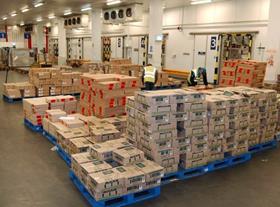
Heathrow airport, the UK's leading air cargo gateway, is investing £180m in expanding its freight handling capacity, the logistics press reports.
Heathrow Holding chief executive John Holland-Kaye told delegates at a British Chambers of Commerce international trade conference today (3 November) that the airport had drawn up a 15-year investment plan that would double the cargo volumes moving through the airport.
“Cargo is essential for UK PLC and Heathrow is its global freight connector, with 26 per cent of all UK goods by value going through the airport,” he said. “This investment plan will significantly improve our cargo facilities and support British businesses to keep the economy moving, connecting exporters to the world and helping the government reach its £1trn export target by 2020.'
The plan includes redesigning the freight handling facilities at the “horseshoe” area of the airport, “to reduce congestion and smoother processes, all enabling freight to flow better through the airport and halving process time from eight-to-nine hours to four hours”.
Plans include the improvement of air-to-air transit through the creation of a facility on the airfield, which will enable smoother handling of transhipment cargo that “arrives by air and is due to fly out by air”. This, Holland-Kaye claimed, would shorten connection times from the current average of over six hours
Heathrow has also pledged to become 100 per cent ‘e-freight ready and to build a new truck parking area with improved facilities for drivers.
The Freight Transport Association’s (FTA) director of global and European policy, Chris Welsh, said: “Heathrow’s planned investment and increased freight capacity is exactly the type of commitment that FTA has long been asking for. The significance of air freight is often overlooked, but today’s announcement illustrates that Heathrow Airport has listened very carefully to ourselves and the freight industry. The improvements it is proposing are essential to the growth and success of the UK economy.”



